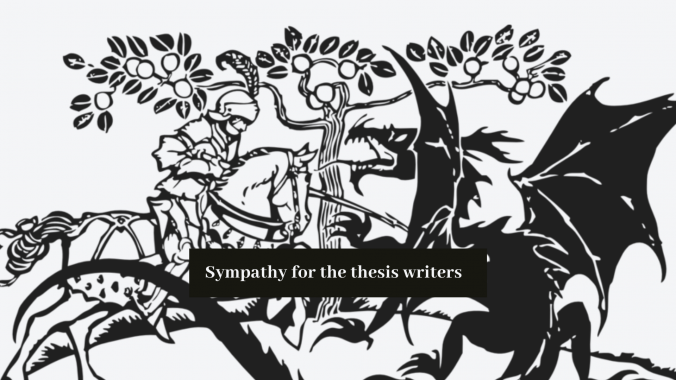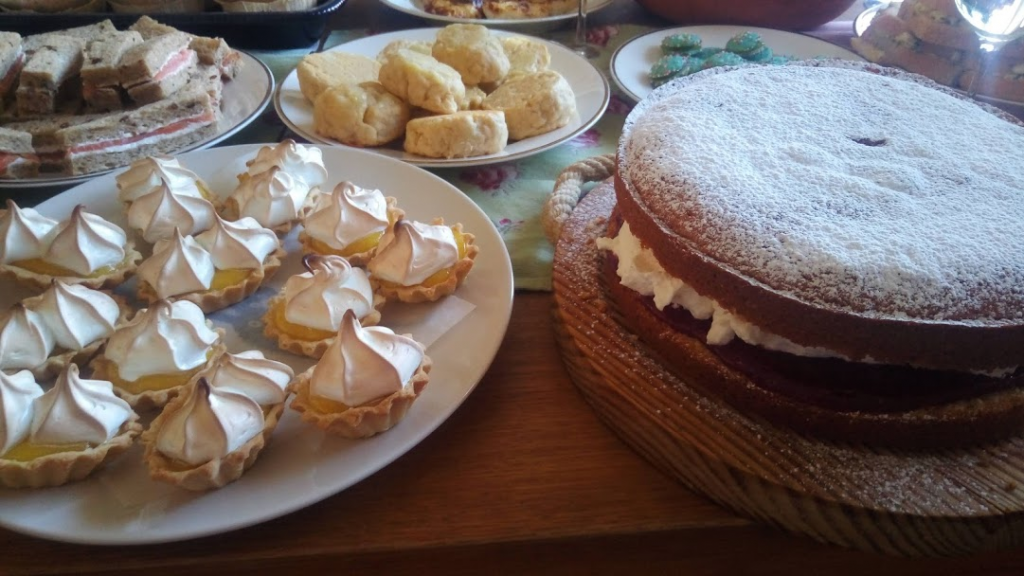Often my study group and I sit at the round table, like the knights of King Arthur, deciding how best to slay the thesis dragon. Our ideas as our best swords, our peers and their feedback our shields, our supervisors as our guides and trainers. We have committed to our battles.
I love a good analogy, but this is, at times, what it truly feels like. You’re taking up arms alongside those you’ve mentally trained with over the last years, to each combat your own idea, to slay your own dragon. The journey you will remember, the dragon your prize.
In the last few months of one’s course you’re faced with this inevitable challenge and at times it can feel undoable, impossible or downright mad. The idea you’ve got isn’t direct enough, is too large, is too small, has been done before, deviates from the subject, isn’t new, is too difficult… The list goes on and on.
Like an intellectual case of bipolar disorder, the day-to-day writing of a thesis can have you enthralled and excited, elated at the idea of completion and fascination of your peers – to dejected and hopeless, devoid of wonder, critiquing every word written. Or anything in-between.
The words you write one day can have such significance and meaning. Yet, the next day, they might read like nonsense. It’s a careful balance, this writing business. The critical eye is of utmost importance, at times when it is necessary, reviewing your text – does it make sense? Does it read well? Just as blindly writing can be useful too, emitting a slew of words from the brain in no particular order to organise later. Sometimes just writing is better than overthinking.
Often we too find ourselves encircling a point, using large words or long sentences to make a small point, we get lost in the words, lost in a sea of descriptions. ‘Perhaps in the likelihood of such speculative circumstances one may be inclined to come to the conclusion of…’ etc etc. The advice of one of my classmates (although the real attribution should go to the professor she quoted) ‘SAY WHAT YOU MEAN’. Harder than you may think. The very day I got this advice, in the evening, watching an episode of Game of Thrones, Sansa and Arya were discussing threats when Sansa snapped ‘Say what you mean’ – I took it as a sign. Talking in riddles gets you nowhere. More importantly, it gets the reader nowhere.
I started with an analogy, so I’ll end with another. Writing a thesis you’re happy with is like trying to bake the best cake you’ve ever made without a recipe. You have an idea of what ingredients will go together, you might, at times, have an idea of what the finished product might look like with your current trajectory, but it’ll rarely end up looking like the image in your head. Your supervisor is the master baker. You can ask them for advice on ingredients – ‘does banana and cardamom go together?’ or why your cake keeps baking flat (perhaps it’s missing a certain pinch of something?), but you can’t ask them to measure out your ingredients or bake your cake for you. Eventually, after trial and error, after up and down, after the inevitable mental strain, you’re left with something that you’re satisfied or even happy with.
We’re not all going to make wedding cake masterpieces, but we can damn well try.




Recent Comments